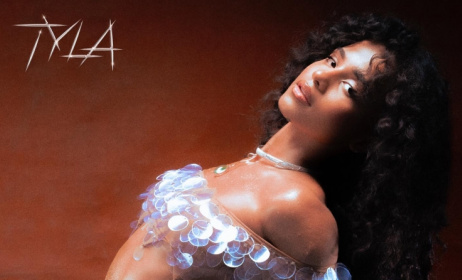Simi bets and wins on Simisola
“See me, this is who I am,” artists often mean with eponymous albums, either as introduction—on debuts—or affirmation of an image lost or about to change.
 Simi is 'making a bet on herself by showing the...possibilities of her voice.'
Simi is 'making a bet on herself by showing the...possibilities of her voice.'
On Simisola, Simi is both introducing herself as a full-fledged pop artist and also showing her mainstream ambitions, nine years after Ogaju, her gospel album debut. She has crafted a complete album, as opposed to cobbling together a selection of hit singles—the usual for Nigerian pop artists.
Simisola's second track, ‘Joromi’, retains only patterns of Victor Uwaifo’s guitar riffs in the song’s pre-chorus; everything else is discarded to make a love song. By having ‘Joromi’ followed by ‘Aimasiko’, Simi gives the impression that she will gut Ebenezer Obey’s classic as she does Uwaifo’s. The expectation heightens the pleasure of listening to Simi follow her own verse with Obey’s evergreen chorus. This is a kind of unintended delight only possible on an album created to be consumed whole.
Those two homages to great musicians are bookended by the ballads ‘Remind Me’ and ‘Complete Me’, which round up the first third of the album. This third reveals the range of Simi’s voice: ‘Joromi’ is the typical tongue-in-cheek Simi love song, but with the ballads, she reduces whimsy to produce heartfelt declarations of affection.
Simi’s voice has always carried the possibility of undermining the intentions of her words. Her most loved songs are those where she’s dials down the playfulness as she does on ‘Love don’t Care’, for which she won the Best Vocal Performance category at the 2016 Headies. With Simisola, she has found a way to retain the lightness of her voice and persona, while being earnest, all without turning bathetic.
She also extends the possibilities of her voice by taking on juju, that party-music genre that has been colonised recently by Adekunle Gold—the height of his reign evinced in ‘My Life’—first on ‘Aimasiko’ and also on the aptly named ‘O Wa N’be’, a Yoruba expression that has become synonymous with extravagant parties. It is easy to hear Gold’s ‘My Life’ within Simi’s ‘O Wa N’be’, because they take inspiration from the same juju sources. A bit of King Sunny Ade is in the guitar, drums and the line ‘Ijo ti mo jo lana, ko mai to mi rara.” (The dance I danced yesterday isn’t enough at all.)
Incidentally, Adekunle Gold is the album’s only guest artist.
While Simi holds on to her levity on ‘Take Me Back’, the emtional gravity of Adekunle Gold’s professions keeps the song honest. Perhaps the most important detail of this song—beyond the biographical—is the way the artists blend. Simi’s chemistry with Falz is much talked about, producing their joint EP Chemistry, but after multiple collaborations, her rapport with Adekunle Gold is beyond evident. Perhaps, the malleability of her style is the thing to be acknowledged. Simi is as comfortable with Falz’s silliness as she is with Adekunle Gold’s sweetness.
Pop music as genre relies on the kind of ease of adaptability Simi displays on Simisola. The Nigerian extreme is Wizkid—whose latest album is an unabashed borrowing from other cultures. There is also Yemi Alade, whose oeuvre is built on courting increased numbers by featuring musicians from other African countries.
Simi, however, shows the other side of pop music—the one that makes it great. By being unshackled to a particular style or mood, she’s able to experiment. In ‘Original Baby’ she takes Fela’s Afrobeat, mixes it with old school R&B, and transforms the result to a personal anthem. She dabbles into techno music on ‘One Kain’, although not to the same excellent effect as in ‘Original Baby’. And in ‘Hip hop Hurray’, she embraces the trendy marimba-filled tropical house/dancehall beat that has produced such zeitgeisty songs as Ed Sheeran’s ‘Shape of You’.
In the breadth of its experiments, Simisola is in the same category as BANTU’s Agberos International and Omawumi’s Timeless: 2017 albums that are worldly in style. Of the three, Simi’s is the only pop offering. Nigerian pop music is in artistic stasis, as striving for commercial success limits the risk-taking necessary to produce good music. This has resulted in a stamp of ‘alternative’ placed on every ambitious production, creating a dichotomy between good music and music that sells: Alternative or pop?
Simisola Bolatito Ogunleye is making a bet on herself by showing the fullness of her first name and the possibilities of her voice on Simisola. The result of this bet will be decided by the pockets of her audience. But if quality of work were the only requirement to win this wager, Simi’s success is a forgone conclusion.
Buy Simi's Simisola on iTunes
Artist: Simi
Album: Simisola
Label, Year: X3M Music, 2017



































Comments
Log in or register to post comments